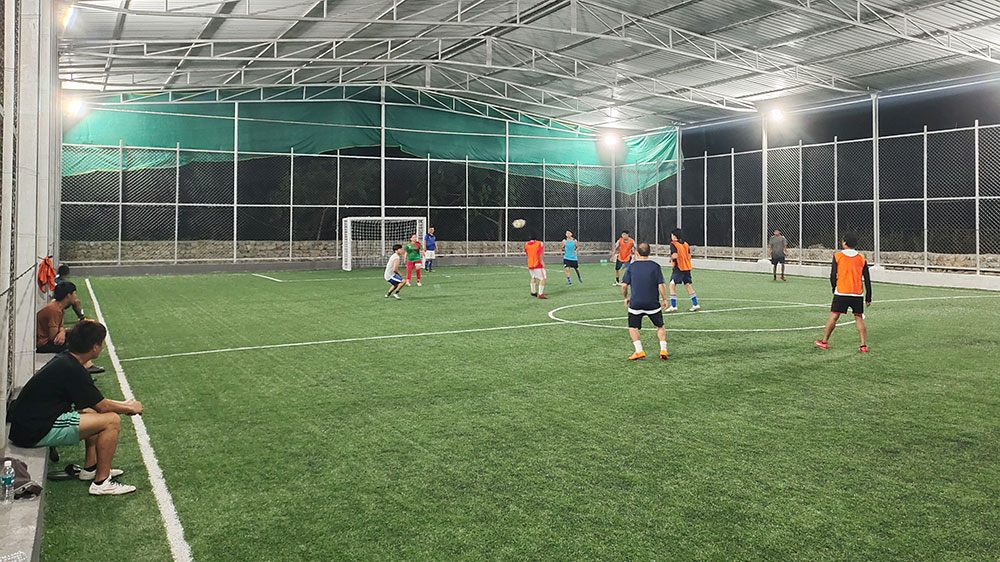Lhakpa Quendren
Once thriving with the enthusiasm of futsal enthusiasts, Gelephu’s futsal facilities are now grappling with financial woes, courtesy of the surging competition that has hit them hard.
With a total of nine futsal grounds in the area, including the Youth Development Fund facility and additional grounds in Dekiling and Samtenling, the fierce proximity of these facilities is resulting in a decline in customer visits.
Maintaining a fee structure of Nu 1,000 per match for daytime games and Nu 1,200 for nighttime matches, futsal entrepreneurs find it challenging to cover loan payments, operational expenses, and maintain profitability.
Despite some facilities offering discounted fees for regular customers upon request, the battle for customers has intensified.
Ugyen Lhamo, overseeing Chogyel Futsal in Dekiling, highlighted the struggle, stating that there was no improvement in the business even after reducing fees. “Covering the monthly loans has become increasingly difficult, so we raised the fees back to normal.”
The establishment of competing futsal facilities nearby has escalated the competition, leading to fewer matches and underutilization of the facility during daytime hours.
Jigmeling Industrial Park’s relocation to Samtse has further impacted the futsal business, with operators noting a decline in customers. Tshewang Lhamo, operator of RDGS Futsal in Jigmeling, emphasised the challenges in covering loans despite maintaining fees comparable to nearby facilities.
Nima Dorji, owner of NTS Futsal in Gelephu town, adopted a low pricing strategy with fees as low as Nu 800 per match but still struggles to stand out amidst the intense competition. “Futsal enthusiasts have plenty of choices.”
He expressed concern about potential difficulties in covering monthly rent and staff salaries, even with a customer base including taxi operators, airport staff, and occasional visits from monks.
As the once-lucrative futsal business faces unprecedented challenges in Gelephu, operators are grappling with the need to adapt to the changing dynamics of the market to survive and thrive once again.


